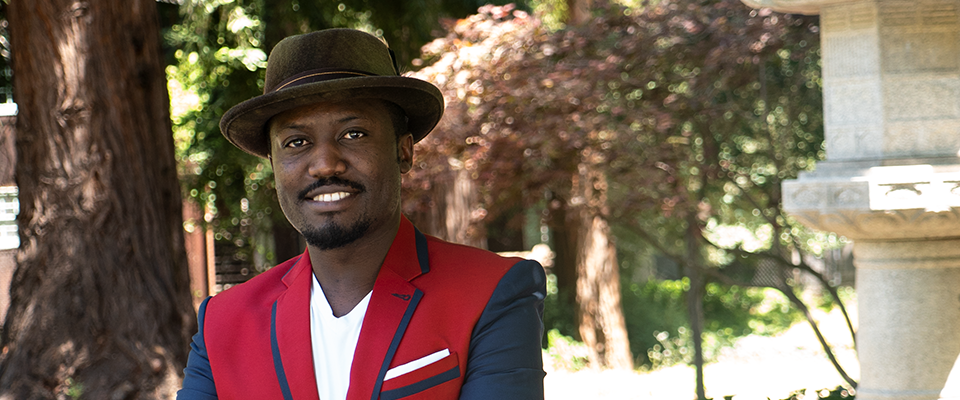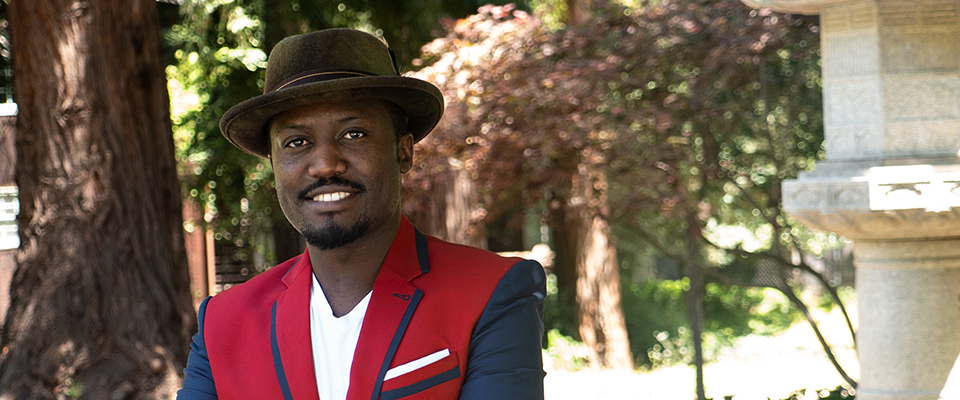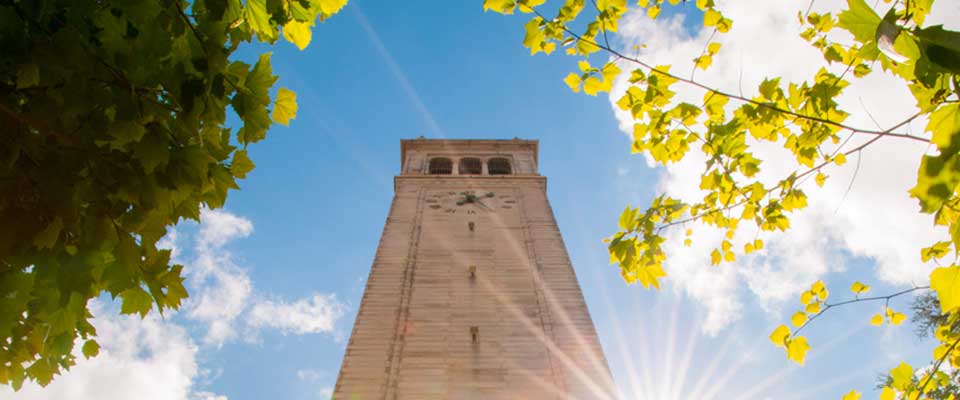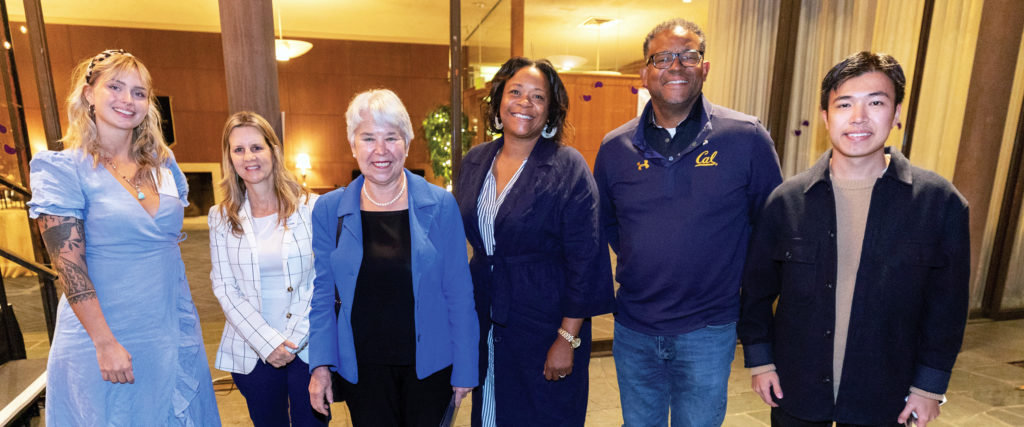“I have three main communities,” Chris Ategeka ’11 states. “The first is the community of Uganda, my home where I was born; the second is the community of Oakland, my adopted home; and the third is the community of Berkeley.”
Chris first joined the Cal community in 2010 when he arrived as a transfer student from Oakland community college Laney College. “The whole reason why I ended up at Cal,” Chris states, “is The Achievement Award Program (TAAP). I applied to lots of colleges, but receiving the TAAP scholarship made me feel, ‘They want me.’”
When Chris transferred to UC Berkeley, he was the only African and African American student in his year in the mechanical engineering department.
Studying at Cal, particularly as an engineering major, wasn’t easy. “The question of enjoying Cal doesn’t come with a black-and-white answer because it is very intense, and there is a lot of pressure.” He jokes, “Being an engineering student…[the work] kind of sucks your soul. You don’t have time to join a lot of other social clubs.”

Folks in the TAAP community—both fellow students and full-time staff members at the Cal Alumni Association (CAA)—quickly became Chris’s main community at Berkeley. “They get you. Everyone understands each other,” he recalls. “Everyone has a pretty core story, and you hear about the diverse backgrounds people had to overcome to be at Cal. It’s very inspiring.
“People in the TAAP program are very ambitious and come from a certain background where they start 50 yards out and had to work 10 times harder to get to where they are now,” Chris adds. “You can see this zeal and hard work play out in their current lives in the jobs they take and the companies they run.”
“Some things in life: you cannot put a price tag on them. The value of being around like-minded people, people who come from the same background as you and have the same aspirations as you—I don’t think you can put a tag or value on it.”
The community and the like-minded nature of the people within the TAAP program have, over time, influenced Chris’s own pursuits.
For a project in his last year at Cal, Chris built a moped that he envisioned would be able to benefit his community back home in Uganda, where access to healthcare is a major issue. Chris received a $25,000 grant for this project from UC Berkeley’s Judith Lee Stronach Award, which supports students in projects that “heighten awareness of social consciousness and contribute to the public good,” to further his moped design.
The longer Chris worked in the healthcare-device field, however, the more he realized that the healthcare problems he was hoping to address weren’t static. “My initial thought was ‘I’ll bring people from the village to the hospital,’” Chris explains. “But then I realized, getting people to the hospital is not enough, because there’s lack of access to actual healthcare professionals. I realized I had solved problem one, but then discovered there was problem two.”
Chris is actively working to address the aforementioned “problem two” with his company, Health Access Corps—as well as combat unintended consequences of technology with his current project, UCOT; and bring innovative, new ideas to light at TEDxOakland. He formerly also helped co-found Privail, a healthcare company that aims to more easily track and detect diseases like HIV.

In 2016, Chris also became a member of the Forum of Young Global Leaders, a community of individuals from around the world who are dedicated to creating positive change in the world. His experience there brought him contact with incredible people, innovators, and even heads of state. “When you see that someone is running a country, and all you’re doing is supplying a bicycle to a person…” Chris laughs, “You feel like, ‘I gotta step up my game!’”
Even as Chris’s goals and ambitions continue to grow with increased exposure to the limitless ideas possible, he consistently turns back to his community. “What brings me lots of joy, personally, is people and community,” Chris says.
“Some things in life: you cannot put a price tag on them. The value of being around like-minded people, people who come from the same background as you and have the same aspirations as you—I don’t think you can put a tag or value on it.
“TAAP created that space for us. That’s the reason I really value the contribution that TAAP has had on my life. Over time, I created a lot of friendships with other people from TAAP, and we all found ambition from the people we were around.”




















